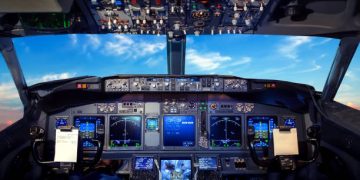Boeing is set to present its strategy to federal regulators on Thursday for resolving the safety and quality challenges that have impacted its aircraft manufacturing in recent years. The Federal Aviation Administration (FAA) mandated that Boeing develop a corrective plan following an incident in January where a fuselage panel of a Boeing 737 Max 9 detached mid-flight on an Alaska Airlines aircraft. Fortunately, there were no injuries reported. Investigators found that bolts securing the panel were missing before the incident occurred. This event has further impacted Boeing’s reputation and has led to several civil and criminal investigations.
Some whistleblowers have alleged that Boeing has been compromising safety by taking shortcuts, a claim that Boeing denies. An FAA-convened panel identified deficiencies in Boeing’s safety culture. FAA Administrator Mike Whitaker gave Boeing a 90-day deadline in late February to devise a plan to improve quality and address the agency’s safety concerns. Whitaker emphasized that this plan marks the beginning of a process to enhance Boeing’s safety practices. “It’s going to be a long road to get Boeing back to where they need to be, making safe airplanes,” Whitaker said in a statement to ABC News.
In response, the FAA has limited the production of the 737 Max, although it is believed that Boeing’s production rate has dropped below this limit. Boeing’s recent difficulties might result in criminal charges related to the crashes of two Max jetliners in 2018 and 2019. The Justice Department recently stated that Boeing breached the terms of a 2021 settlement, which had allowed the company to avoid prosecution for fraud. This settlement was based on allegations that Boeing misled regulators about a flight-control system implicated in the crashes.
While most issues have been linked to the Max, Boeing and its key supplier Spirit AeroSystems have also encountered manufacturing flaws with the 787 Dreamliner. Additionally, Boeing has faced setbacks with other projects, including its Starliner space capsule, a military refueling tanker, and new Air Force One jets. Boeing has committed to restoring the trust of both regulators and the public. The company, which has fallen behind competitor Airbus, says it is working to reduce “traveled work” — tasks performed out of sequence during assembly — and is closely monitoring Spirit AeroSystems.
#BoeingNews #AircraftSafety #SupplyChainManagementNews #FAA #AviationQualityNews















